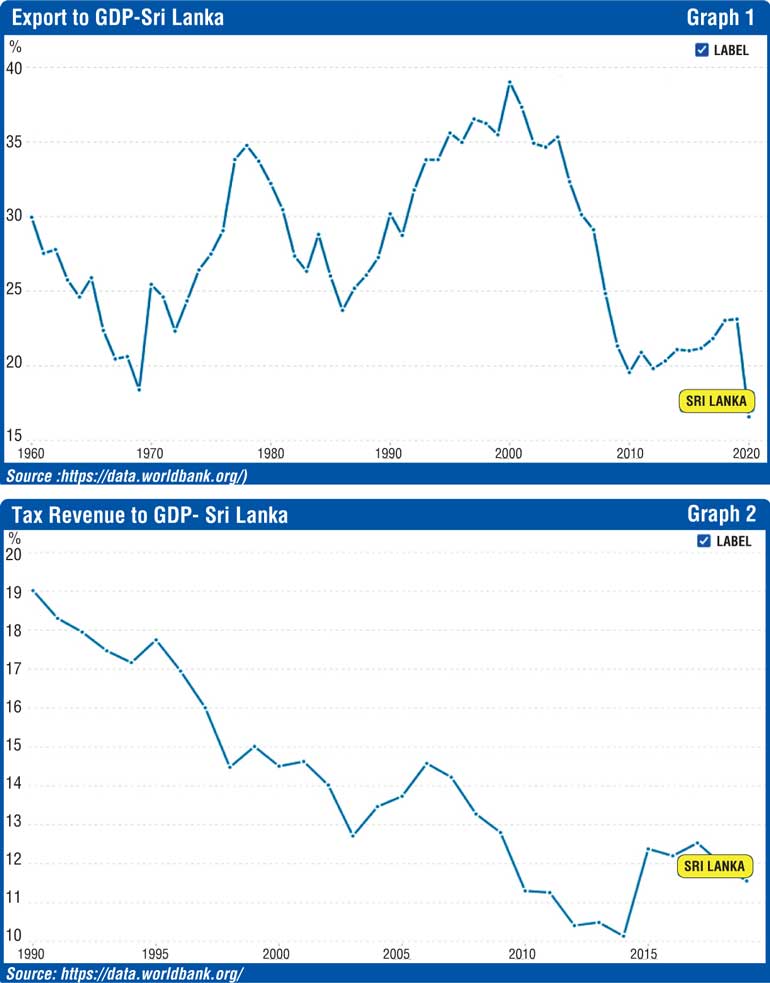Friday Feb 27, 2026
Friday Feb 27, 2026
Monday, 14 March 2022 00:00 - - {{hitsCtrl.values.hits}}


The writer is engaged in a project of developing the financial literacy and business acumen of the small and medium size enterprises (SMEs) of Sri Lanka with the help of the Institute of Chartered Accountants of Sri Lanka (CA Sri Lanka). Although CA Sri Lanka which is the authority of establishing accounting and auditing standards of the country, has introduced two sets of standards one for SMES and the other for Micro Level entities in addition to its common standard, it is the experience of the writer that most of these SMEs do not prepare basic financial statements at least for them to know the status of their businesses, let alone following those accounting standards. This is a hindrance for them to develop.
(CA Sri Lanka). Although CA Sri Lanka which is the authority of establishing accounting and auditing standards of the country, has introduced two sets of standards one for SMES and the other for Micro Level entities in addition to its common standard, it is the experience of the writer that most of these SMEs do not prepare basic financial statements at least for them to know the status of their businesses, let alone following those accounting standards. This is a hindrance for them to develop.
The Gross Domestic Product (GDP) of Sri Lanka is $ 80 billion. Turnover of Walmart is $ 560 billion. Turnover of HSBC Holdings which is ranked 102 in the index and which is having a branch in Sri Lanka is also $ 80 billion. The GDP of the USA is around $ 20 trillion and Sri Lanka’s rank is around 70 among the other countries. Therefore, Sri Lanka is an SME among the world economies. The country inherits the financial discipline of its SMEs.
That was a preface in providing a critique of the policy statement of the so-called 11 constituent parties of the Government which plans to move away from the Government ranks. They identify the present economic crisis by way of scarcity of foreign exchange for the imports, drop of the Government revenue, collapse of the domestic system of food production, collapse of domestic industries and as a result of this situation the possibility of creating a political turmoil in the country by the enemies of the country.
Open economy is identified as follows in their statement.
“We should accept that we cannot find out the solutions to this crisis without acknowledging the fact that regressive reforms introduced after 1977 in the name of open economy have pushed the nation to this crisis. That economic model based on foreign loans and focused on urban constructions and trade has endangered the economic security of the country and living standard of the low-income strata while totally disintegrating the production system of the country. Within that economic model disparity of income distribution of the country widened and in the short run some deceiving superficial decorations were visible. It is important to understand that we are experiencing a grave depression of this so-called development model.” (Translation was by the writer)
This is a wrong interpretation. The closed economy that prevailed prior to 1977 was rejected by the people. The current situation is also a closed environment. Many countries followed open economic policies for their development. For instance, Vietnam records exports of 106% of GDP and imports of 103% of GDP. This is an economy focused on trade.
The origin of the present economic problem was the previous Mahinda Rajapaksa regime to which all of these parties have contributed. An attractive economic growth was achieved mainly based on construction supported by the loans on high interest rates. Costs of these projects were high and as usual the hands of the authorities were greased. Considerable portion of these constructions have not given adequate returns compared to the capital invested. Under this type of circumstances any business would face bankruptcy. Therefore, the growth rate was deceitful in substance. Growth rate of a country like us should be based on exports. Exporters got stepmotherly treatment during that period. Economic pundits of that Government (present Governor of the Central Bank was one of them) did not pay any attention to exports. In 2004 exports to GDP was 35% and it dropped to 21% in 2014. This is explained in the graph 1 Export to GDP-Sri Lanka.
In addition to that considering the Government finance tax revenue of the Government to GDP was going down for a long time. This is explained in the graph 2 Tax Revenue to GDP- Sri Lanka.
The Government came into power in 2015 introducing a new act of taxation to address this issue. Results of that are also in the graph. When this Government came to power in 2019 these taxes were withdrawn and the Government lost the tax revenue and the tax base to a great extent. This was the immediate reason for the current economic situation. Economists warned the Government at that time and their advice was not heeded by the Government and these 11 constituent parties of the Government.
They cannot argue that the cause of the present economic crisis was the open economic policies adopted by the successive governments. There are enough examples of countries with closed economies achieving higher growth rates after adopting open economic policies.
This statement does not deal with the high expenditure side of the Government which causes budget deficits which is one of the causes of the current economic crisis. Successive Governments over a period had high budget deficits. One of the main reasons for high Government expenditure is inefficient Government service. There is no way forward for the country without restructuring the Government service.
The governments run the state-owned business entities in an inefficient manner which has contributed to the problem. These are maintained in order to provide employment opportunities for the cronies of the governments and to maintain the power of the politicians who are responsible for those entities. Trade unions of those entities also behave solely based on their self-interest. These institutes should be privatised based on a regulated manner or converted to government-private enterprises. In the past privatisation also was done to help the cronies of the governments. The country cannot maintain a large number of passengers over a long period.
If the open economy was implemented properly this type of unproductiveness would not last in the economy. Therefore, the question is not the open economy but whether we can implement it in the correct way.
It is true the comment in this statement that the living standard of the lower strata of the society is going down. The disparity of the income distribution of the country widened over the years. This can be remedied to some extent by increasing the direct taxes and reducing the indirect taxes as suggested in the statement. Thereby the benefits of economic growth can be taken to the masses.
Subsidies are provided to the needy persons as well as to the affluent persons. The State bears unnecessary costs in this respect.
It is recommended not to bank solely on the foreign investors but the concessions should be given to local investors as well. It is good. It should be noted that one of the reasons that the country does not attract foreign investors is that the politicians and the bureaucracy are prepared to exploit them. There should be a methodology to eliminate this. The investors do not want to come to a country which does not have the authority of the law.
Education reforms should be done in order to facilitate the employment opportunities in the high-tech industries. The current closed education model should be opened. The political block which represents the politicians who made these proposals is not allowing this to be done.
This statement proposed that the banking system should pay an attractive additional price in competition with the black market to purchase the foreign currencies of expatriate workers in order to increase the quantum of remittances.
Therefore, it is their intention to continue the price control of the foreign exchange market. The Central Bank deviated from its policy on 7 March 2022 and increased the exchange rate for USD to Rs. 230. On the following day it went up to Rs. 260. This is happening since this price control cannot be maintained. It is the same imposing price controls on sugar as well as on foreign exchange.
It is proposed to abolish the recent import tariff concessions to the importers of sugar, coconut oil, wheat flour, milk powder, etc., and introduce price formulas and thereby make justice to the consumers and local producers. New import tariff structure will be introduced.
This is combining price control with import substitution. Import substitution can be used for a short period in order to come out from the current impasse. It would not be beneficial in the long run since the cover of the Government could be used to produce low-quality goods and continue to be inefficient such as the Government institutions. We have experienced this during the 1970-1977 period.
The best is export promotion since the whole world can be the market for exports whereas only Sri Lanka could be the market for import substitution.
It was suggested that to impose a minimum price for the purchase of paddy to make paddy farming an attractive economic activity. These are very old suggestions and there is no novelty in them. Wet zone paddy farming is not profitable like dry zone. The productivity of the agriculture sector in Sri Lanka is very low. In order to improve it the farmers should be directed to cultivate commercial crops. By imposing a minimum price, the consumers are forced to pay for their inefficiencies.
This statement is based on the wrong ideology of the old left in this country. The world has shed this ideology and we are still struggling with it. Most of these suggestions are outdated. At this critical juncture of the history of the country, political parties should be able to come out with radical proposals. There is no such vision to these political leaders. Unless they change their policies, they are in the process of moving to the political dustbin of history.